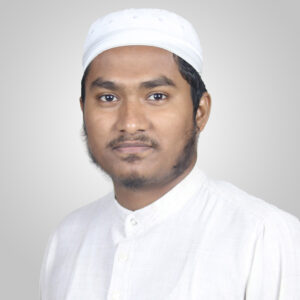When we think of waqf, or Islamic endowment, many of us picture mosques, schools, or wells built centuries ago. It feels like something historic, a concept that belongs to another era. But in Indonesia, Dompet Dhuafa is showing that waqf is anything but outdated. They’ve given it a modern twist, turning this age-old institution into a tool for real social change—and the impact is remarkable.
At its heart, waqf is simple. A person donates an asset—like land, a building, or even money—and the benefits from that asset are used to help people in need, generation after generation. Think of it as planting a tree that will keep bearing fruit long after the planter has passed away. Dompet Dhuafa takes on the role of managing these assets, either developing them directly or working with trusted partners. Their goal is to generate what they call a “waqf surplus,” and that surplus becomes the lifeblood of programs that serve the poor and marginalized.
One of the most powerful examples of this is in healthcare. Imagine walking into a hospital where every service is free, not because of government subsidies or temporary donations, but because years ago someone donated a piece of land. That’s exactly what’s happening at hospitals like Rumah Sehat Terpadu in Bogor, where free health services have been offered since 2012. There’s also RS Aka Medika Sribhawono in Lampung, originally the property of the province’s first heart specialist, and RS Mata Ahmad Wardi in Banten, which provides specialized eye care to the poor. Even RS Hasyim Asy’ari in Jombang takes the concept further, combining physical, mental, social, and spiritual healing. Each of these hospitals is a living example of how waqf can continue healing communities, long after the initial act of giving. In 2023, the total number of beneficiaries of the health program was 325,037.
Education is another area where Dompet Dhuafa is making waves. Schools and universities funded by waqf are not only educating the next generation but also creating surplus income to reinvest in other programs. The Al Syukro Universal Islamic School, for instance, donated more than IDR 1.3 billion in surplus funds back to Dompet Dhuafa in 2023 alone. STIM Budi Bakti, a university built on 8.5 hectares of waqf land and known as the “People’s Campus,” has already graduated over 5,000 students, many of whom have gone on to become entrepreneurs and community leaders. Even the SMART Cibinong School, a waqf gift from a private company, is educating children from kindergarten to junior high. In all of these cases, waqf is not just building institutions—it’s shaping futures.
But waqf’s potential goes beyond hospitals and schools. Dompet Dhuafa has also embraced it as a tool for food security and agriculture. In 2023, they managed 1,000 hectares of rice fields spread across eight different regions. The harvest from these fields didn’t end up in markets for profit—it went directly into food aid programs like Tebar Zakat Fitrah and Food for Dhuafa. They’ve also established DD Farm, a program that trains livestock farmers in modern techniques, connects them to markets, and ensures their animals find purpose during Eid sacrifices. It’s a powerful cycle of giving, where waqf land and assets are directly tied to feeding families and empowering farmers.
The model itself is beautifully simple. A donor gives an asset. Dompet Dhuafa develops or manages it. That asset produces value, whether in the form of income or direct services. And the people in need—the mauquf ‘alaih—receive the benefits. It’s a cycle that doesn’t just offer charity in the moment but creates sustainability for the long term.
What makes Dompet Dhuafa’s approach so inspiring is how seamlessly they’ve blended Islamic tradition with modern innovation. They’ve taken a concept rooted in the earliest days of Muslim civilization and applied it to today’s challenges in healthcare, education, and food security. It proves that waqf isn’t just about preserving heritage—it’s about building hope.
If you ever needed proof that waqf still matters in today’s world, look no further than Dompet Dhuafa. They are showing, one hospital bed, one classroom, and one rice field at a time, that waqf is not a relic of the past. It’s a force for change in the present—and a promise for the future.
👉 If you’d like the visual version, here’s the presentation link.
Know more about Dompet Dhuafa by visiting here.
#Islamic_Social_Finance #Waqf #Waqf_Case #Social_Impact


